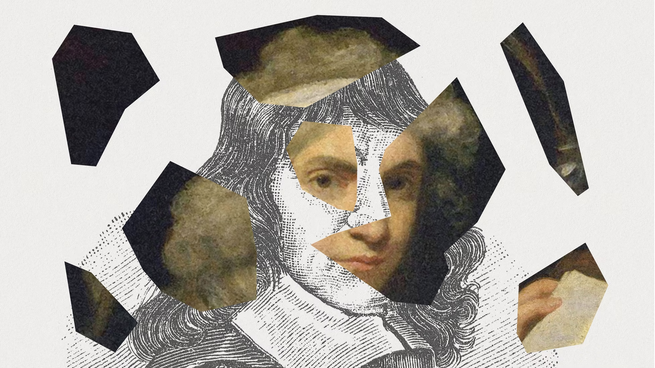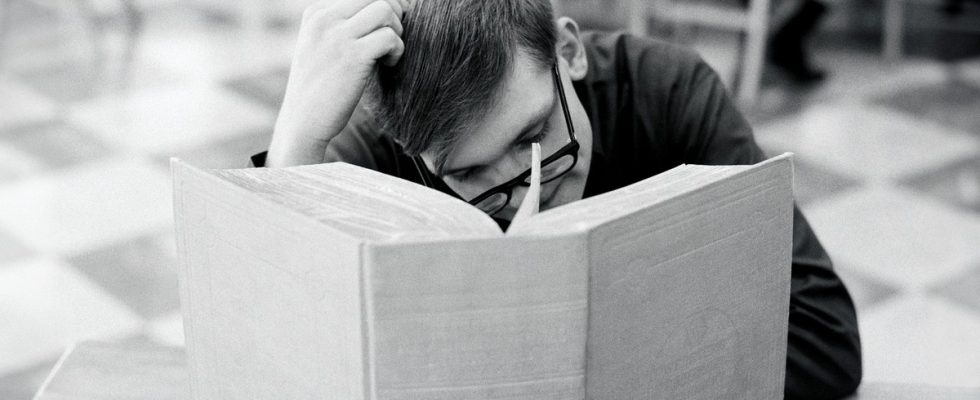This is an edition of the revamped Books Briefing, our editors’ weekly guide to the best in books. Sign up for it here.
Almost as soon as printing became widespread, books began serving as teaching tools. Just consider one of the 16th century’s best sellers, Il Galateo, Overo de’ Costumi, a primer on proper social comportment (example: A person should not sniff at their food or drink; “the reason is that from his nose could fall those things that men find disgusting”). “How to” books have been a staple ever since. This week, Chelsea Leu takes a sideways look at this genre, recommending books in which the reader accompanies the writer as they learn something new—shepherding or marathon-running or knitting sweaters.
First, here are three new stories from The Atlantic’s Books section:
My own favorite recent book in this category is Akiko Busch’s How to Disappear. Unlike many of these other authors, Busch is not looking to add a skill or new knowledge to her life. She’s trying to subtract from her existence everything potentially distracting, everything that might point back to herself; she’s trying to figure out how to be invisible. This takes her into rush hour in Grand Central Terminal to experience the “improvisational choreography” of being a body among bodies, and launches a meditation on how it feels to age as a woman and to no longer be seen as a sexual object (a topic she wrote about in an essay for The Atlantic).
What most struck me about the book are the moments when Busch succeeds in escaping the noise and speed of daily life. In one chapter, she takes us to a place where this is actually possible: underwater. It’s an obvious solution, but no less ingenious for that. Where else can you melt into the landscape so thoroughly—soundless, weightless, subject to the drift of the water, no emails or texts to respond to? “Forty feet beneath the surface, the striped parrotfish are oblivious to me,” she writes. Listening to her own breathing, she feels that she has finally come close to achieving what she’s been pursuing: “We all know that sensation of life slowing down, of being suspended in time, of being outside the rhythm of ordinary life, but underwater, that is the way things really are.”
The books that Leu has assembled for us are maybe a little less Buddhist than my pick. They include some real gems, such as Katharine S. White’s paean to growing things, Onward and Upward in the Garden; and C. L. R. James’s love letter to the game of cricket, Beyond a Boundary. If these titles stretch a tradition that began with an explainer of how not to gross out your dinner companions, they are still of a piece. They are all about learning a practice—and the meaning this can lend to your life.
Seven Books for the Lifelong Learner
What to Read
The Sellout, by Paul Beatty
In this satire of American race relations, Beatty makes comedy out of one of the most serious topics imaginable. The Sellout begins with the narrator, a Black farmer in the suburb of Dickens, California, appearing before the Supreme Court for bringing back segregation and slavery. How did he get there? One thing led to another. After his sociologist father is shot by police, the narrator inherits both his land and his informal role in the community: talking his neighbors out of bad ideas. He does not rise to the occasion, starting a segregated bus so that his friend can live out his fantasy of giving up his seat to a white woman, and then, after crime on the bus mysteriously vanishes, agreeing to expand the program to the local school. Beatty’s narrator isn’t an Uncle Tom figure or the “sellout” he is accused of being so much as a comfortable guy who has concluded that racism isn’t much of a problem anymore. The book’s lesson is not easily distilled, and Beatty relentlessly complicates it in ways that evoke the old maxim: It’s funny because it’s true. — Dan Brooks
From our list: Nine books that will actually make you laugh
Out Next Week
📚 The End of August, by Yu Miri
📚 Pulling the Chariot of the Sun: A Memoir of a Kidnapping, by Shane McCrae
📚 Disruptions, by Steven Millhauser
Your Weekend Read

Philosophy’s Big Oversight
Some male philosophers have argued that women thinkers are disqualifyingly circumscribed by their femaleness, that they are impeded from seeing objective truth because of their subjective (and often subjugated) experience. “Women regulate their actions not by the demands of universality,” wrote Hegel, “but by arbitrary inclinations and opinions.” This assumes, first, that men are the default human and, second, that philosophy has not always been shaped by subjective experience. (Just look at Nietzsche: After the writer Lou Andreas-Salomé rejected his marriage proposal, much of his writing about women turned vitriolic.) Hegel’s “universality” is a philosophical impossibility that excludes thinkers unlike himself: Philosophical thought will always be shaped by our inclinations and opinions.
When you buy a book using a link in this newsletter, we receive a commission. Thank you for supporting The Atlantic.

